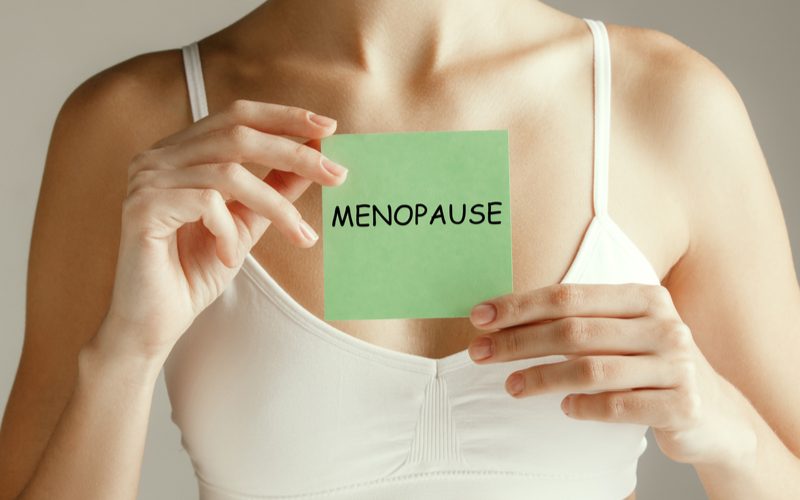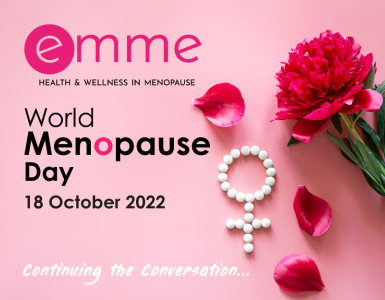If your partner is going through the menopause, you may be wondering what the heck is going on
The person you’ve grown to understand and predict over the years may be acting in new and different ways, some of which might seem strange or baffling. For example, they might be experiencing hot flushes, night sweats, or a lack of sexual desire, all of which might be affecting your relationship in the bedroom and beyond.
Many men feel like they can’t talk to their wives or girlfriends about this sensitive topic
They’re afraid (maybe rightfully so!) of saying the wrong thing. You might be in the same boat, worrying that your wife’s personality has changed forever, and your sex life is suffering.
Thankfully, by learning a little bit about the menopause, you can understand what is happening with them and learn how you can help. Even Rod Stewart thinks it’s a good idea – he is a firm believer that men’s menopause education needs to be greatly improved.
The rock legend recently said, “men have got to get on with it, understand and come out the other end. I googled and googled and googled. I googled menopause so much when she was going through it. She was in a fragile situation.” Now, he’s a firm believer in menopause classes for men to help them to be more understanding.
After all, this is a natural part of a woman’s life, and it shouldn’t be taboo or shameful. Instead, you can really help your partner get through this tough stage.
The Menopause: The Basics
Let’s start by defining the menopause – it officially occurs one year after a woman (or another menstruating person) has her final menstrual period. Most women experience the menopause between 45 and 55 years of age, with the average UK age of 51. Around 1% of women go through the menopause before they reach age 40.
For the few years before the menopause, a woman goes through something called perimenopause. This is when the symptoms really start to ramp up. In fact, the negative symptoms can begin as early as seven years before the menopause and then continue for five more years! That adds up to more than a decade of annoying, frustrating, and downright disruptive symptoms.
Menopause Side Effects
So, what kind of side effects might you notice in your partner? While not everyone experiences all of these common menopause side effects, your partner will likely at least a few of these symptoms to differing degrees of severity.
Some of the most common menopause side effects include:
- Hot flushes
- Insomnia
- Vaginal dryness
- Painful intercourse
- Trouble concentrating
- Anxiety
- Unexpected vaginal bleeding
- Memory loss
- Mood swings
- Low mood (depression)
- Night sweats
- Low sex drive
In most cases, these symptoms start a few years before your partner has their final period, and they can last for a few years after the menopause occurs.
What Causes Menopause Side Effects?
Menopause side effects occur when a woman’s hormone levels, such as oestrogen, testosterone, and progesterone fluctuate and change. These changes can cause the temperature fluctuations, vaginal bleeding, and a lower sex drive.
As a woman gets older, her ovaries stop producing as much oestrogen, and she stops releasing an egg every month. While this is more common in older women, premature menopause can occur at any age. In some cases, premature menopause can be caused by some breast cancer treatments, chemotherapy, and an oophorectomy (surgery to remove the ovaries).
How can you Support your Partner through the Menopause?
Here is the most important question of all – what can you do to be there for your partner as they deal with nasty menopause side effects? Here are some of the ways you can show her your support.
- Don’t blame her reactions on the menopause – Did your partner get a bit growly when you didn’t do the dishes, teary while watching a film, or upset by a colleague at work? Whatever you do, don’t suggest it’s because of the menopause! Even if hormonal fluctuations could be causing her outsized reaction, saying so will make her feel unheard, invalidated, and patronised. If you think her reactions are outsized on a regular basis, try to speak to her about this at a neutral time and never in the moment.
- Show her more empathy – Menopause causes many physical changes, but it can also cause emotional struggles. Even if she is finished with having children, the perception that she is “losing her youth” can make some women feel a sense of grief.
- Keep communication open and honest – You may feel uncomfortable talking about the menopause at first, but it’s time to shed that discomfort. Talk to your partner about how you can work together to alleviate her symptoms, ask her how you can help with stress levels and give her the encouragement she needs to seek medical help.
How to Improve Sex During the Menopause
There are plenty of reasons why sex becomes a lower priority during the menopause. Not only do night sweats and hot flushes make a woman feel uncomfortable, but they make being touched downright unpleasant. Vaginal dryness can make penetrative sex painful, and fluctuating hormones can shut down a woman’s sex drive completely.
So, what can you do to make her feel desired and improve sex?
- Don’t forget the romance – Even if you have been together for decades, remember to keep things interesting and romantic. Buy her some flowers, give her compliments, and remind her that you still think she’s sexy. A date night and romantic walk can really change the mood.
- Don’t pressure her – If you haven’t been having much sex, she doesn’t need reminding – she knows! And she likely feels bad. Don’t pressure her or point out how long it’s been. Instead, talk openly about how you’re feeling.
- Communicate – This brings us to our next point – keep the lines of communication open. Maybe she feels embarrassed about vaginal dryness or she’s ashamed that her sex drive has dropped. Talking about it will help both of you feel more comfortable.
- Share what feels good – Now that her body is changing and you’re both older, things can feel different than they used to. Talk specifically about what feels good and what doesn’t.
- Try lubricants – Lubricants can help overcome vaginal dryness and help make sex more enjoyable for both parties.
- Remember that the menopause is a temporary phase – While the symptoms can last years, remember that this phase will pass. If you continue to communicate and connect, your relationship will be stronger than ever.
Treatment for the Menopause
It is important to note that the menopause is completely normal and doesn’t require treatment. However, some of the symptoms it causes are uncomfortable, unpleasant, and downright debilitating.
In the past, women were often made to feel embarrassed about their menopause symptoms and were reluctant to speak to their partners. In many cases, even GPs were uninformed about the treatments available. However, today there is a lot more openness about the menopause, and doctors are given far more training about options to help patients get relief from their symptoms.
Some of the most common treatments for menopause side effects include
- Hormone Replacement Therapy (HRT) – Doctors can prescribe hormonal replacement therapy (HRT) treatments that replace some of your partner’s lost oestrogen, helping to improve her symptoms. HRT is usually administered via skin patches, tablets, gels, and implants.
- Cognitive Behavioural Therapy (CBT) – In some cases, women find CBT helps give them strategies to manage their anxiety. However, this does not mean the menopause symptoms are ‘all in her head.’ The anxiety and depression are caused by very real hormonal changes, but CBT can help her deal with the symptoms.
- Vaginal Oestrogen – Vaginal oestrogen can often treat vaginal dryness and can make intercourse more comfortable. Vaginal oestrogen comes in cream, lubricant, and pessary forms.
- Diet and exercise – A healthy diet and exercise can help increase overall health, which can alleviate some of the worst menopause symptoms. However, this is often easier said than done! When you feel exhausted, nauseous, and overheated, it’s hard to stay fit and eat healthily. Sometimes some of the symptoms have to be alleviated before a woman can work on her overall health.
Now that you’ve learned some of the most important facts about the menopause, it’s time to help your partner through this challenging phase of life
Share your experiences and suggestions in the comment section below or get in touch by emailing [email protected]. We would love to hear your stories too at [email protected]
















